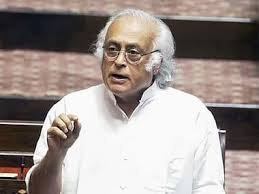Congress terms Trump’s invite for Pak Army chief ‘third setback’ for India, after US’s mediation claim and official’s counter-terror remark

The Congress party has strongly criticized US President Donald Trump’s decision to invite Pakistan’s Army Chief, General Qamar Javed Bajwa. According to Congress, this is the third serious diplomatic setback for India in recent days. The first came when Trump claimed that Prime Minister Modi asked for US mediation on Kashmir. The second was a US official’s remark accusing India of lacking efforts in counter-terrorism.
Trump’s Invite Alarms New Delhi
This invitation comes at a time when tensions between India and Pakistan remain high. The issues of cross-border terrorism and Jammu & Kashmir continue to dominate India’s security agenda.
Congress spokesperson Randeep Singh Surjewala expressed serious concern.
“This is the third diplomatic slap in the face of the Modi government. First came Trump’s Kashmir mediation claim. Then came the counter-terror comment. Now, this invite to the Pakistani Army Chief—the mastermind of cross-border attacks on India.”
US Tilt Towards Pakistan Raises Eyebrows
Trump’s decision to host Pakistan’s military head has sparked a debate. Many believe it indicates a shift in US policy in South Asia. This shift could complicate India’s long-standing strategic partnership with the United States.
For years, India has blamed the Pakistan Army for sheltering terror groups. Now, by extending an official invite, Washington appears to be signaling legitimacy to that very institution. This move has worried foreign policy analysts in New Delhi.
Congress Attacks Modi Government’s Foreign Policy
Congress took the opportunity to question Prime Minister Modi’s foreign policy strategy. They called it “superficial” and “driven by photo-ops rather than substance.”
Surjewala pointed out,
“Despite all the foreign visits and hugs, India’s position is weakening globally. This is not diplomacy—it’s damage control.”
He added that India must assert its core interests more clearly on the international stage.
Earlier Setbacks Add to the Concern
Trump had previously stunned Indian officials by saying that Modi requested him to mediate on the Kashmir issue. India immediately denied this, and the Ministry of External Affairs released a strong rebuttal.
Soon after, Alice Wells, a senior US diplomat, said India needed to do more on counter-terrorism. This statement drew criticism for equating India and Pakistan on terrorism, which India considers unfair and misleading.
Together with the recent invite, these events have shaken confidence in India-US strategic alignment.
Experts Divided on Implications
India’s strategic thinkers remain split. Some believe the US is using Pakistan for its own goals in Afghanistan and to counter China. Others argue that India has failed to assert its narrative on the global stage.
Regardless of the reason, the perception of a shifting US stance is causing unease.
MEA Yet to Respond Publicly
As of now, the Ministry of External Affairs (MEA) has not released an official response. However, reports suggest internal consultations are underway. A formal communication may soon be issued through the Indian Embassy in Washington.
Conclusion: Foreign Policy at a Crossroads
India now faces a diplomatic challenge. The Congress party’s remarks reflect growing frustration at home. To regain ground, India must rethink its strategy and build stronger alliances based on clear principles, not optics.






